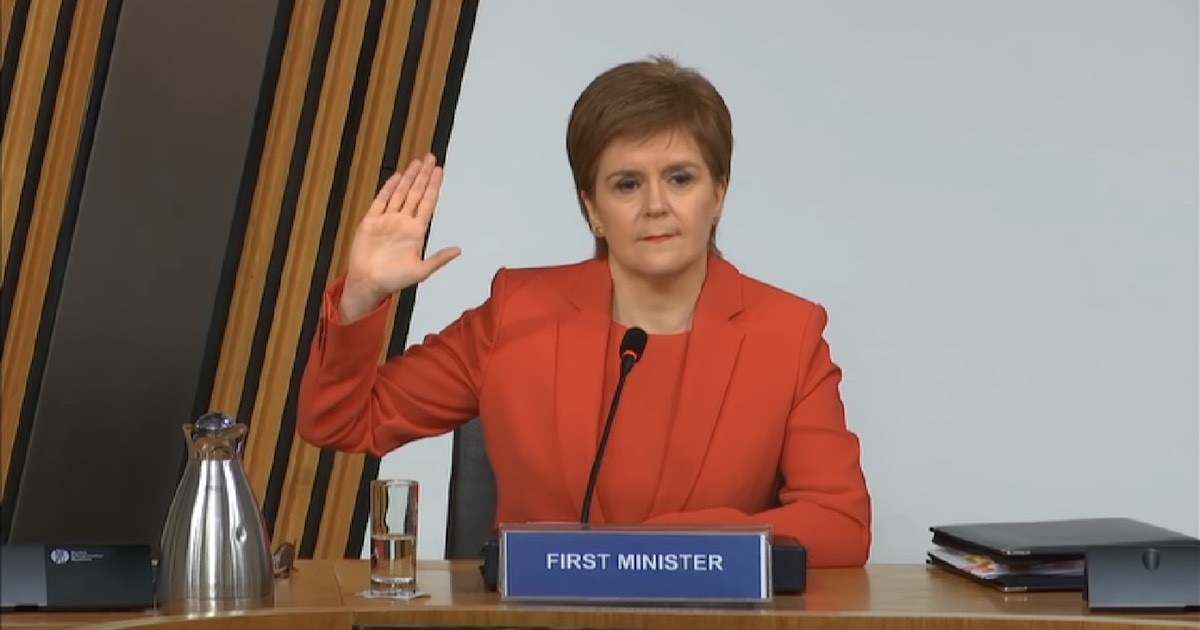mancity2012_eamo
Well-Known Member
Put him up against the wall.As a fellow angler, I have always quite liked Swiss Cheese. You can go off folk though. :-)
He needs to be very careful when I make prez.
Put him up against the wall.As a fellow angler, I have always quite liked Swiss Cheese. You can go off folk though. :-)
He needs to be very careful when I make prez.
I shall be a benign dictator but make Gilead look like Disneyland. ;-)Put him up against the wall.
Scotland simply has a much larger deficit than the rest of the UK, and borrowing is at a level which wouldn’t be sustainable if it were an independent state, or indeed permit entry into the EU. The Scottish government’s own data confirm this.I’m a little confused. Like all UK ‘Regions’ Scotland is allocated funding through the Barnett formula. Utilising devolved powers the Scottish Government then prioritises where that money is spent. It also raises some additional taxes over and above what is paid in the rest if the UK. The list I gave us a result of that prioritisation. In terms of an advert for independence I think it shows in a limited way that we can be different from a Tory Government that Scotland hasn’t voted for in decades.
Where does this additional borrowing come from other than being necessary to fund the financial fuck ups of the UK Tory Government?
What borrowing are you referring to? The UK's?Scotland simply has a much larger deficit than the rest of the UK, and borrowing is at a level which wouldn’t be sustainable if it were an independent state, or indeed permit entry into the EU. The Scottish government’s own data confirm this.
I am dealing with the here and now. I am referring to Scotland’s fiscal deficit, the difference between Scotland’s public expenditure - which is far higher on a per capita basis than for the rest of the UK - and the tax revenue actually generated in Scotland, before the various grants from HM Treasury are considered.What borrowing are you referring to? The UK's?
The spend per head in Scotland is roughly equivalent to London's and less than NI last time I looked.
We seem to be at odds on what we are talking about here. I was demonstrating what is done presently in Scotland within the confines of the Barnett Formula and Devolution. You seem to be saying that that is only sustainable because of excess borrowing. Thats just wrong.
You then fast forward to the finances of an independent Scotland. Totally different subject to the one I was talking about. Can we deal with the here and now first please.
so to eliminate the deficit do you suggest Scotland stops spending the block grant?I am dealing with the here and now. I am referring to Scotland’s fiscal deficit, the difference between Scotland’s public expenditure - which is far higher on a per capita basis than for the rest of the UK - and the tax revenue actually generated in Scotland, before the various grants from HM Treasury are considered.
This gives the best indication of whether expenditure in Scotland is supported by taxation - essentially whether it is sustainable - or whether the level of expenditure is only supported by borrowing, or in the current case the funding by the rest of the UK. This measure is recognised by the SNP as ‘the deficit’, so it isn’t a controversial choice of metric.
For the last full year of data (21-22), Scotland’s public expenditure was £23.7bn higher than its revenue, which equated to a deficit of 12.3% of GDP, versus the equivalent UK deficit of just over 6% of GDP.
Given that, how can you argue that the current level of expenditure in Scotland is sustainable? It clearly isn’t, and it’s only possible because the funding from HM Treasury fills the gap. So all the various SNP vanity projects which created this huge deficit, and which apparently present the case for independence, would be impossible if Scotland actually became independent. And that’s because public expenditure in Scotland is at a wholly unsustainable level.


Supposing, just supposing Scotland did vote for independence, where would you all stand on the Monarchy.so to eliminate the deficit do you suggest Scotland stops spending the block grant?
Some context in here:

Daily Express claim on Scotland’s ‘deficit’ needs context - Full Fact
It’s true that Scotland technically has a large budget ‘deficit’, but the level of the deficit is mainly due to decisions made by the UK Government not the Scottish Government.fullfact.org
Also if you can be bothered this article gives a fairly balanced view
Of a future independent Scottish economy.

What might the public finances of an independent Scotland look like? - Economics Observatory
With higher levels of public spending but lower tax revenues than the UK average, Scotland would likely have a large budget deficit were it to become independent, which may make spending cuts or tax rises necessary. The long-term fiscal outlook would depend on the performance of the Scottish...www.economicsobservatory.com
Just to box this off. Current expenditure is sustainable because it is linked to the block grant.
In an independent Scotland an initial deficit is almost certain. The size of which would be a result of decisions made during negotiations. Tax rises , spending cuts, borrowing would all be levers to manage the size of the deficit. Mid term, how the Scottish economy performs will be the determining factor.
I wish the UK worked and we wouldn’t even be discussing this but how can it when the English keep voting these parasitic cunts into office?
If you had asked me a couple of years ago, I would have still been in favour of the monarchy. Not now though. I sense that a great deal wrong in these small islands is tied up in our history. An elected president operating within a written constitution would for me, be preferable to monarchy.Supposing, just supposing Scotland did vote for independence, where would you all stand on the Monarchy.
I joke about Sadds for Prez, but would you be a full on Republic with your own head of state or still part of some commonwealth or other arrangement.
I find the subject totally fascinating as there may be a blueprint there for a mutually beneficial solution to incorporating NI into a 32 county state of some sort should that option arise in the near future.
I happen to think the future problems of the world are going to be solved by further integration and cooperation. Being part of bigger and bigger blocks.
England seem to feel different among these islands, but it might not always be so.
Few points to address here;so to eliminate the deficit do you suggest Scotland stops spending the block grant?
Some context in here:

Daily Express claim on Scotland’s ‘deficit’ needs context - Full Fact
It’s true that Scotland technically has a large budget ‘deficit’, but the level of the deficit is mainly due to decisions made by the UK Government not the Scottish Government.fullfact.org
Also if you can be bothered this article gives a fairly balanced view
Of a future independent Scottish economy.

What might the public finances of an independent Scotland look like? - Economics Observatory
With higher levels of public spending but lower tax revenues than the UK average, Scotland would likely have a large budget deficit were it to become independent, which may make spending cuts or tax rises necessary. The long-term fiscal outlook would depend on the performance of the Scottish...www.economicsobservatory.com
Just to box this off. Current expenditure is sustainable because it is linked to the block grant.
In an independent Scotland an initial deficit is almost certain. The size of which would be a result of decisions made during negotiations. Tax rises , spending cuts, borrowing would all be levers to manage the size of the deficit. Mid term, how the Scottish economy performs will be the determining factor.
I wish the UK worked and we wouldn’t even be discussing this but how can it when the English keep voting these parasitic cunts into office?
Initially the monarchy would stay. Maybe a few years down the line it might become a topic of debate. It won't however be allowed to muddy any referendum.Supposing, just supposing Scotland did vote for independence, where would you all stand on the Monarchy.
I joke about Sadds for Prez, but would you be a full on Republic with your own head of state or still part of some commonwealth or other arrangement.
I find the subject totally fascinating as there may be a blueprint there for a mutually beneficial solution to incorporating NI into a 32 county state of some sort should that option arise in the near future.
I happen to think the future problems of the world are going to be solved by further integration and cooperation. Being part of bigger and bigger blocks.
England seem to feel different among these islands, but it might not always be so.
